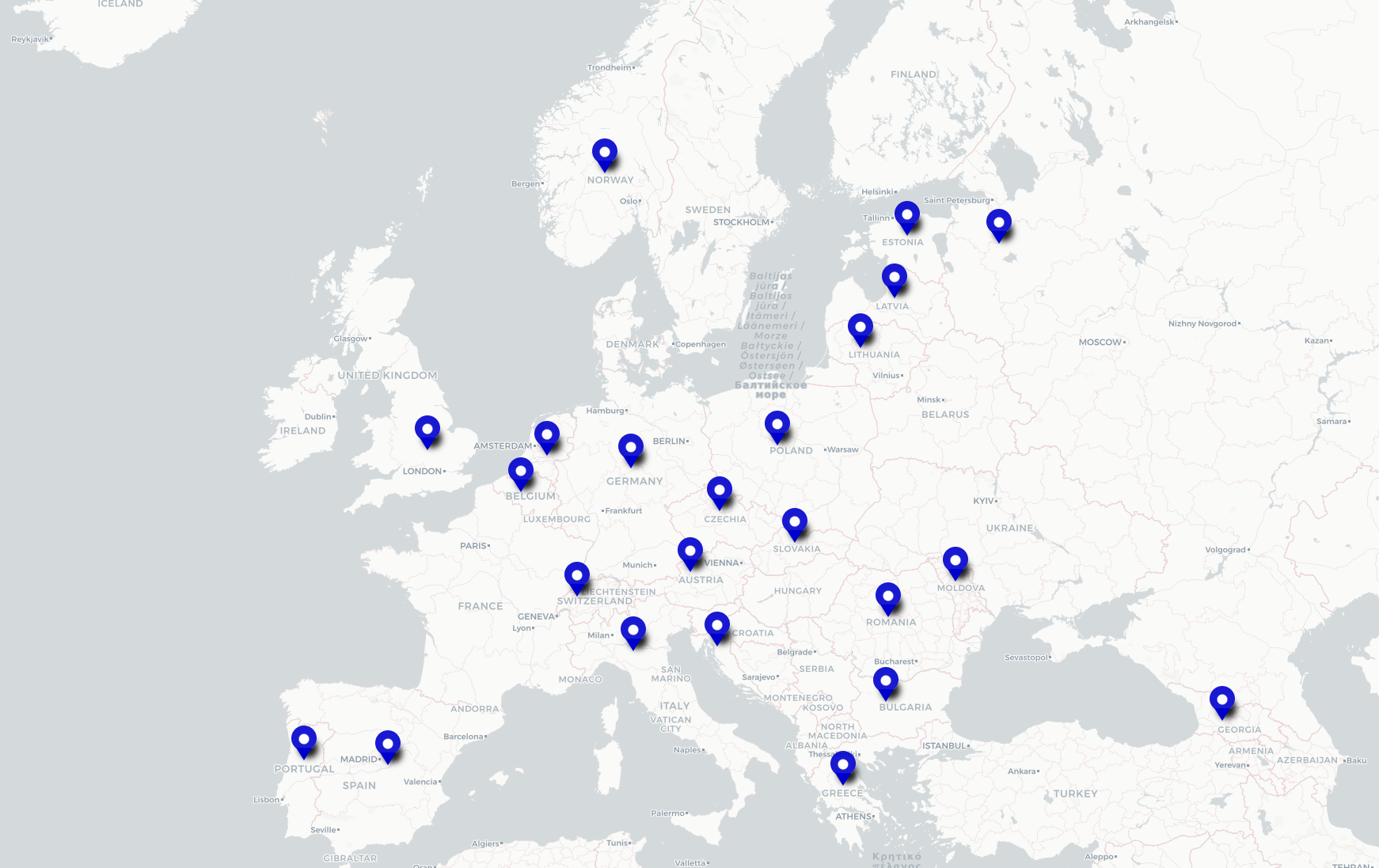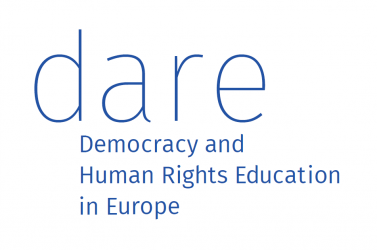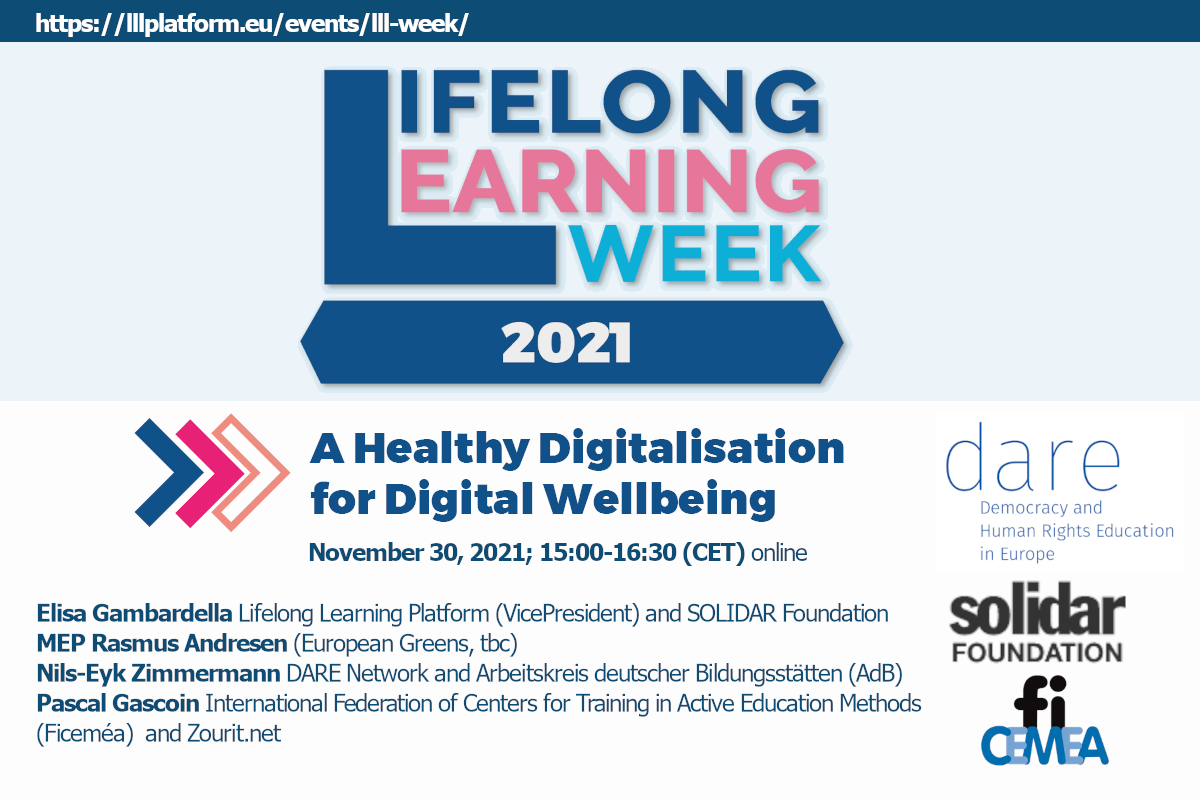We all know how ambiguous the digitalisation feels for many citizens in Europe. On the other hand, we understand that it contributes also to inclusion, participation and feeling well in our society. Is this contradictory?
The DIGIT-AL project (Digital Transformation in Adult Learning for Active Citizenship) invites you to involve in a vivid debate on a healthy digitalisation for digital wellbeing at Tuesday, November 30 2021, 15:00-16:30 (Brussels) online.
With
- Elisa Gambardella, Lifelong Learning Platform (VicePresident) and Education and Lifelong Learning Coordinator at SOLIDAR Foundation
- Estel·la Oncins Universitat Autònoma de Barcelona, CAIAC
- Nils-Eyk Zimmermann, DARE Network and Arbeitskreis deutscher Bildungsstätten (AdB)
- Pascal Gascoin, International Federation of Centers for Training in Active Education Methods (Ficeméa) and Zourit.net
Register until November 26th!
- Registration link (Zoom)
- Check out also the other program parts of the Lifelong Learning Week 2021: https://lllplatform.eu/events/lll-week/lllweek-2021/
About:
Digital transformation is challenging citizens of all ages in Europe. During the Covid-19 lockdowns, digitalisation was one part of solutions and also a part of the challenges. Since digitalisation is an unstoppable and also intended development, the question emerges on how digital pedagogy is contributing to wellbeing.
While digitalisation in its earlier stages was perceived as an overall optimistic project driven by heterogeneous visions and milieus, we discuss the Internet less enthusiastically today. While digitalisation is more and more embedded in our everyday life, it is feeling ambiguous for many people, based on the present discourses on data industry, Artificial Intelligence, job polarisation, leaks, filter bubbles, the psycho-social impact of tracking or social media, fake news, bullying or malinformation, etc.
More and more people feel that the pace of such developments would make things complex and confusing, and also affect their privacy and autonomy. Also, the growing desires of states and authoritarian regimes for data and control give reasons for concern. The EU accepted the challenges by formulating the ambition to create a European and human-centred way of digitalisation, among many other policy documents declared in the European strategy for data or reflected in the elaborations of the Next Generation Internet Initiative.
We ask what a pedagogy for wellbeing in the digital sphere should include. What could education and policy do in order to make people feel well in this digital transformation? In the psycho-social domain as well as in regard to learning about digital transformation?


